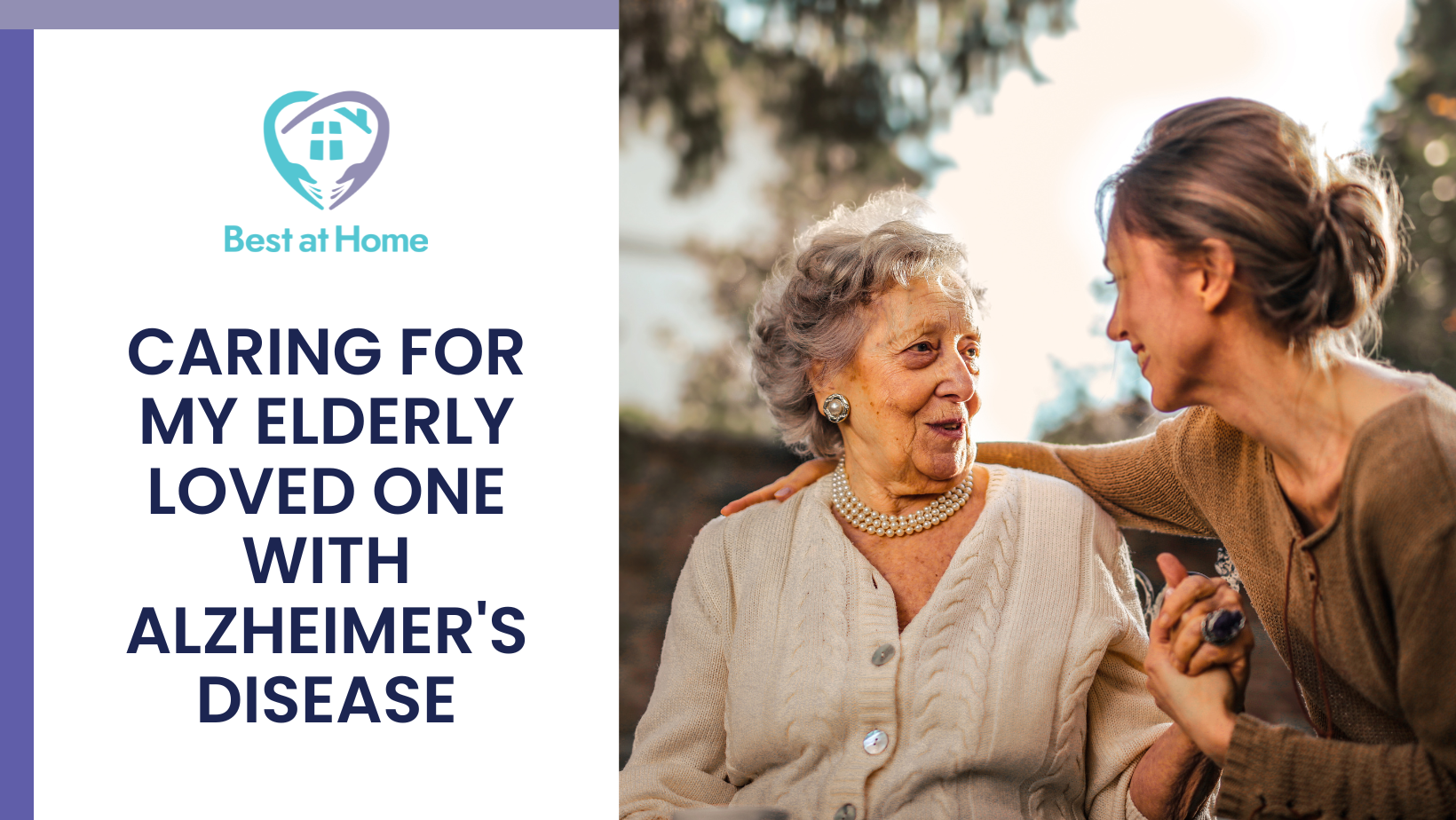Caring For My Elderly Loved One With Alzheimer’s Disease

Aging as a senior brings many challenges. Here are a few tips to consider when your senior is diagnosed with Alzheimer’s. At Best at Home Caregiving, we care for your loved ones in the comfort of their homes.
In simple terms, Alzheimer’s is a brain disease that progressively impacts memory, thinking skills, and, eventually, the ability to perform simple tasks. People with Alzheimer’s also experience changes in their behavior and personality.
Some of the more apparent symptoms of Alzheimer’s disease include changes in thinking, memory, reasoning, and behavior. If you notice any of these symptoms or suspect your loved one is worsening, speaking with a medical professional specializing in degenerative brain disease is best.
Here are some tips to help you better manage your loved one’s condition while improving communication.
Communicate Openly:
Those dealing with Alzheimer’s may experience feelings of disorientation. Therefore, it is vital to communicate as much as possible. Tell your loved one about your daily plans. These step-by-step instructions help them better understand their surroundings and daily tasks.
Try Maintaining a Routine:
Daily activities such as bathing, dressing, and eating help create a sense of security when performed around the same time each day. Help your loved one create to-do lists with appointments and events in a notebook or calendar. Serve meals in a consistent, familiar place and give them ample time to eat.
Aging as a senior can bring many challenges. Here are six things to consider when seeking help for an in-home caregiver.
At Best at Home Caregiving, we’ve put together some tips for dealing with these situations at home.
Always be Kind and Respectful:
Ask them if they are comfortable. Then, when it’s time to dress or bathe, allow them to do as much as possible independently. A sturdy shower chair is recommended to support the person and prevent falls.
For seniors suffering from this condition, a bath may be an experience that causes some stress or shock to the body. Be patient and give them the time they need to understand the situation.
Consider Creating a System of Reminders:
This is mainly to help those who take medication regularly so you can keep track. Plan activities that the person enjoys and tries to do simultaneously – this will give them something to look forward to each day.
Home caregivers understand the importance of these strategies, among others. Moreover, home caregivers provide these services in the comfort of their homes, providing a sense of security, familiarity, and closeness with seniors.
Contact us at 844-544-2378, and our care managers will give you a plan best suited for you and your loved ones. Then, based on your needs, we will provide you with the best in-home caregiver to care for and support your loved ones.




